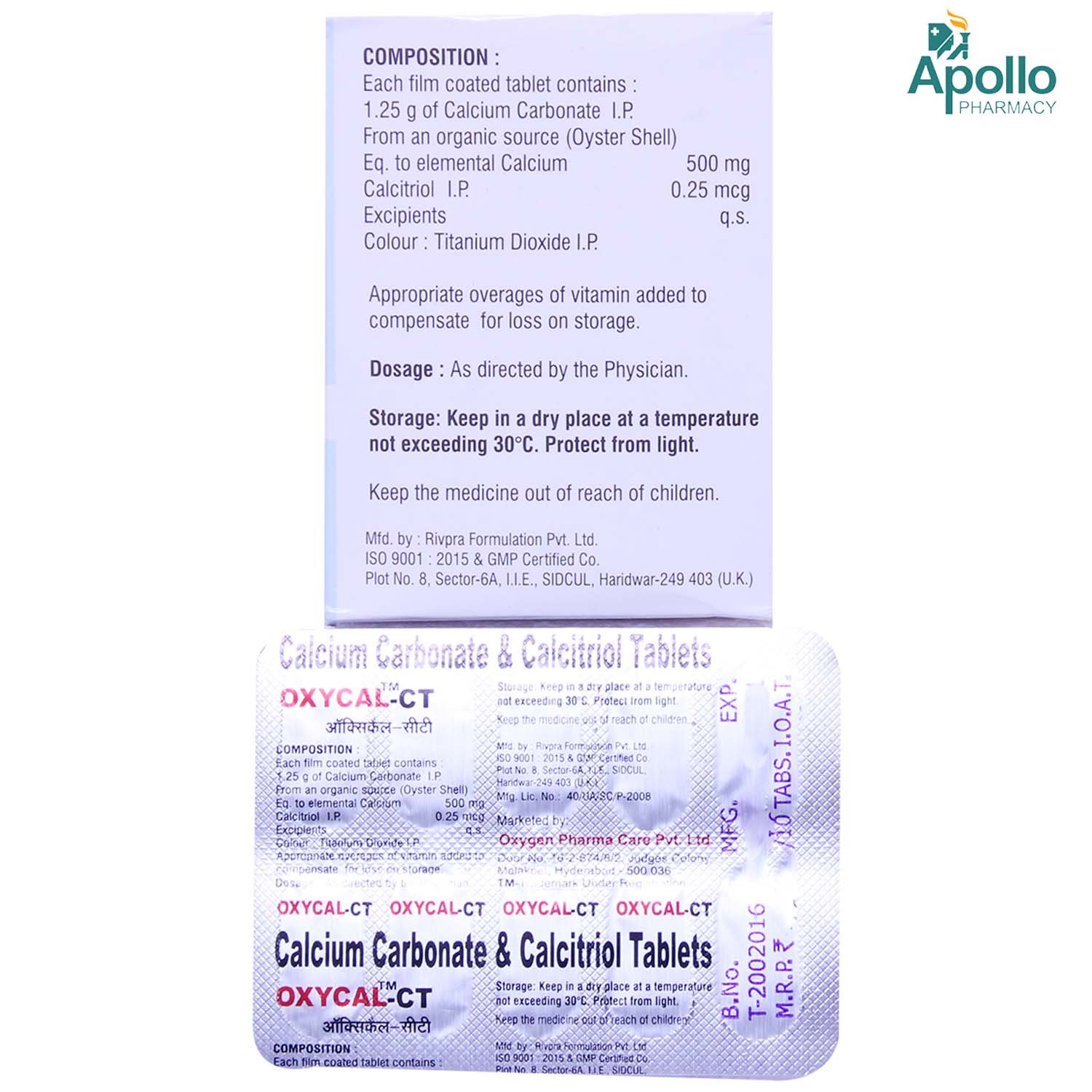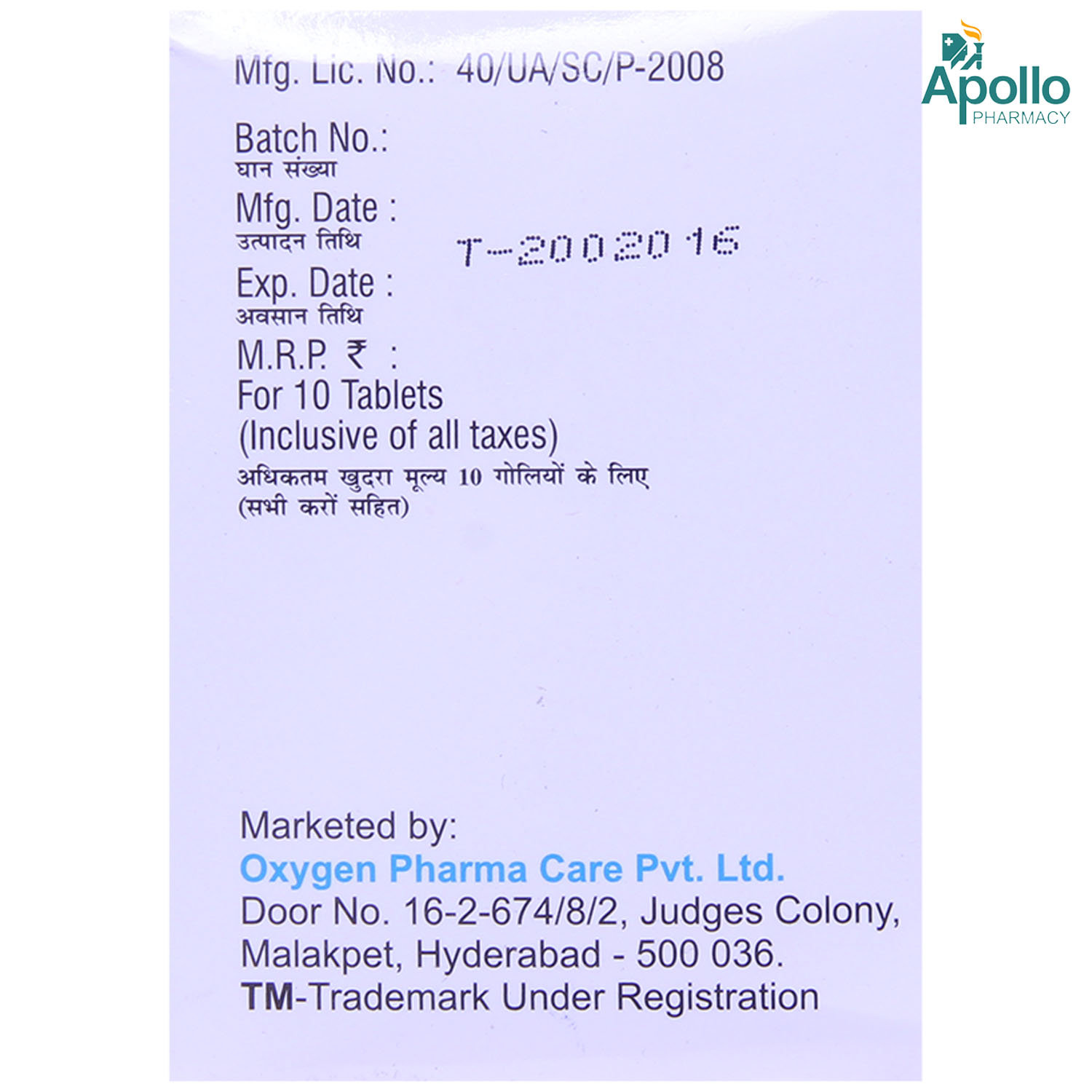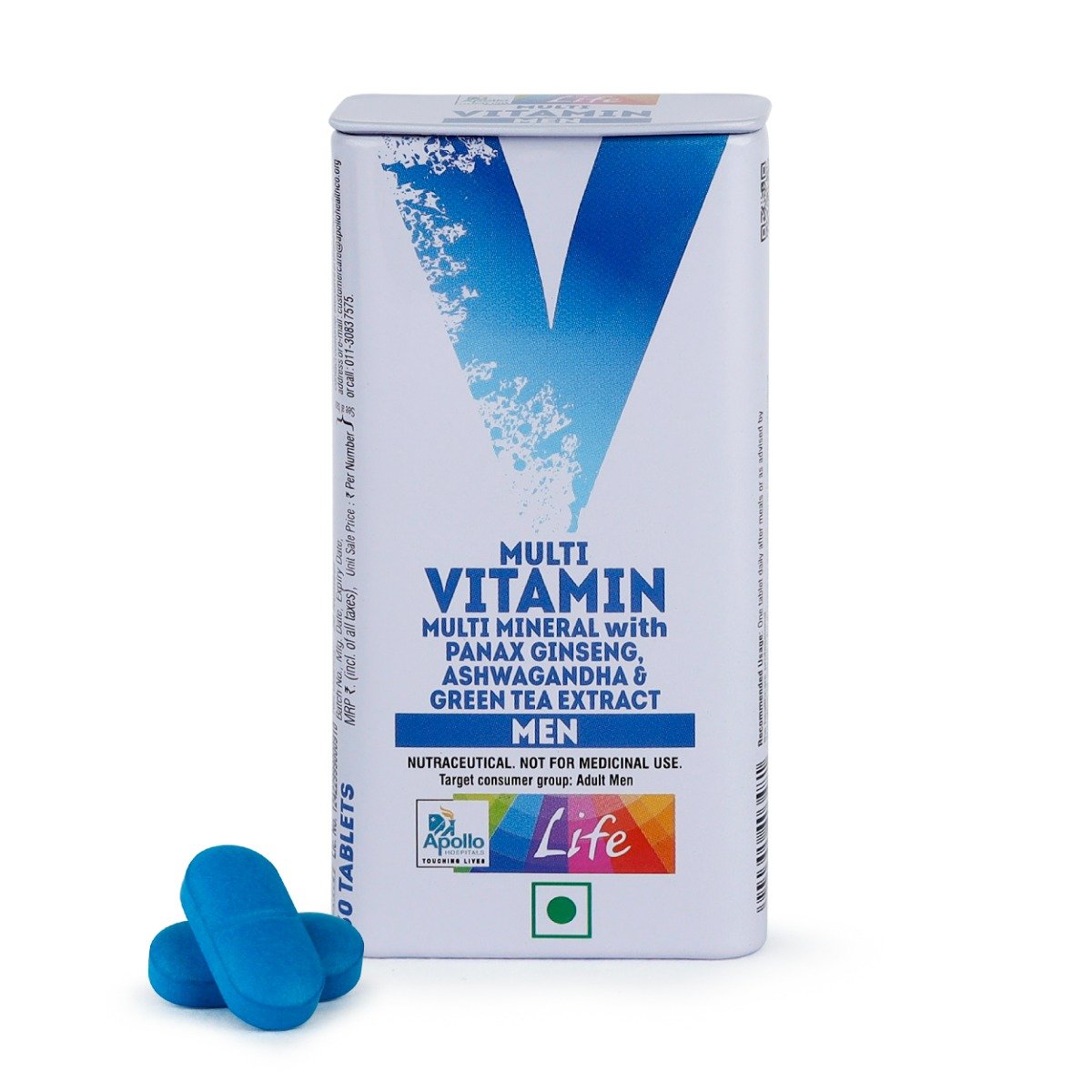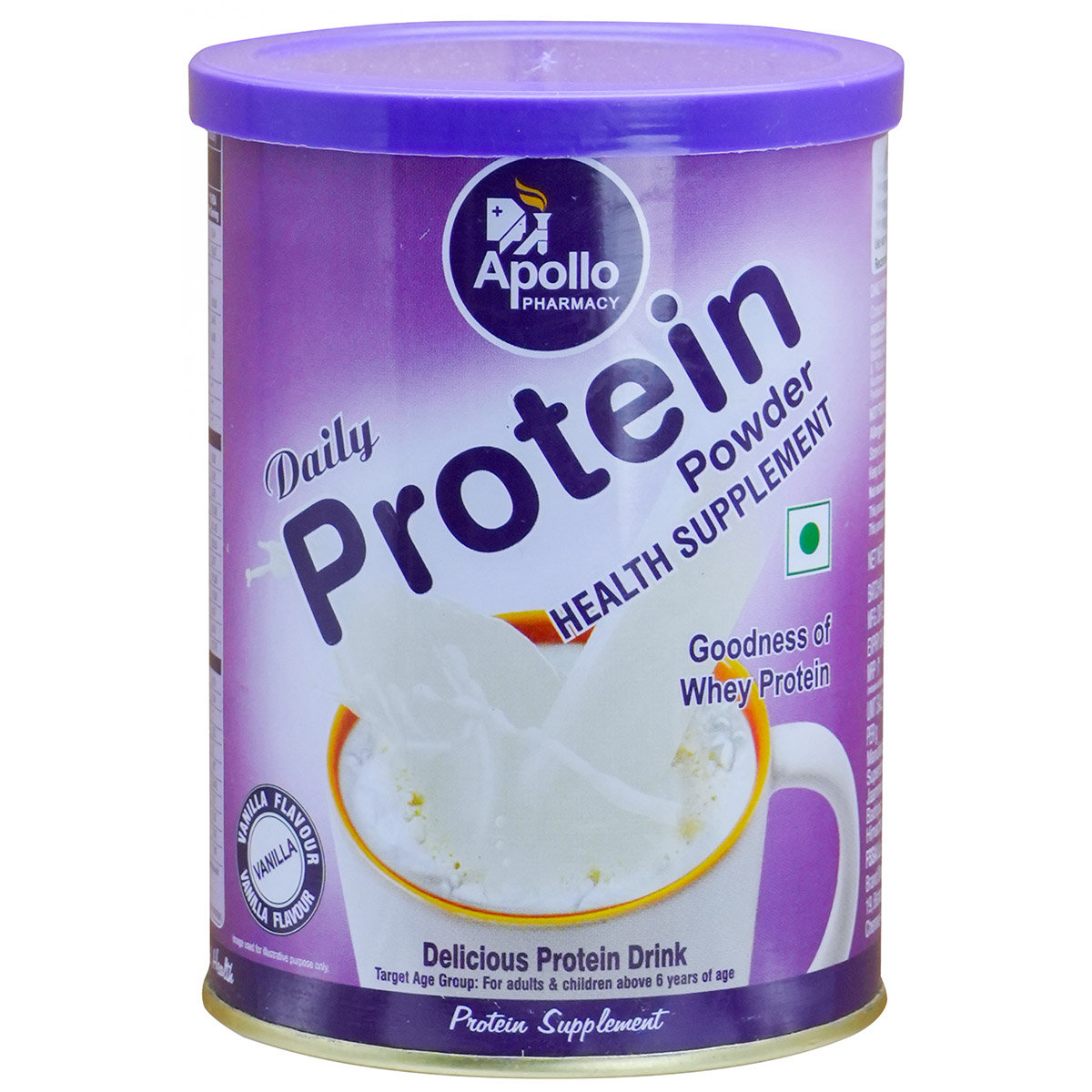Oxycal-CT Tablet 10's
MRP ₹117
(Inclusive of all Taxes)
₹17.6 Cashback (15%)
Know Your Delivery Time
Provide Delivery Location

Secure Payment

India's Most Trusted Pharmacy

Genuine Products
Composition :
Manufacturer/Marketer :
Consume Type :
Expires on or after :
Return Policy :
About Oxycal-CT Tablet
Oxycal-CT Tablet is a nutritional supplement primarily used to treat low blood calcium levels. It effectively treats various conditions, such as vitamin D deficiency, osteoporosis (characterised by weak bones), latent tetany (a muscle disease associated with low blood calcium levels), and rickets or osteomalacia (a condition characterised by softening of bones due to low calcium levels).
Oxycal-CT Tablet consists of calcium and calcitriol (vitamin D). Oxycal-CT Tablet works by increasing calcium and vitamin D levels in the body, thereby supporting the essential functions necessary for bone formation and maintenance. Together, they help prevent bone loss, support bone growth, and reduce muscle cramps caused by low calcium levels.
Oxycal-CT Tablet is likely safe to use. In some cases, it may cause side effects like constipation and stomach upset. These side effects do not require medical attention and gradually resolve over time. However, if the side effects persist or worsen, please consult a doctor.
Take Oxycal-CT Tablet as advised. Your physician will decide the dosage based on your medical condition. You can take Oxycal-CT Tablet with or without food. It is recommended not to exceed the recommended dose of Oxycal-CT Tablet .
Inform your physician if you are allergic to Oxycal-CT Tablet . Let your doctor know if you have any liver/kidney disease, heart disease, kidney stones and hypervitaminosis D (having too much vitamin D) hypercalcaemia (high calcium levels), hypervitaminosis D (high vitamin D levels), heart, kidney, liver, or blood vessel diseases, kidney stones, or malabsorption syndrome (difficulty absorbing nutrients from food) before starting Oxycal-CT Tablet . Pregnant or breastfeeding women should consult their doctor before taking Oxycal-CT Tablet .
Uses of Oxycal-CT Tablet
Oxycal-CT Tablet is used to treat a variety of calcium and vitamin D-related conditions. The detailed uses of Oxycal-CT Tablet are as follows:
- Treats calcium and calcitriol deficiency: Oxycal-CT Tablet helps restore low levels of calcium and active vitamin D in the body.
- Manages osteoporosis: Oxycal-CT Tablet strengthens bones and reduces the risk of fractures.
- Treats osteomalacia and rickets: Oxycal-CT Tablet improves bone softening due to vitamin D deficiency.
- Used in vitamin D deficiency: Oxycal-CT Tablet corrects low vitamin D levels to maintain healthy bones.
- Treats hypoparathyroidism: Oxycal-CT Tablet manages low calcium levels caused by underactive parathyroid glands.
- and treats latent tetany: Oxycal-CT Tablet helps control muscle cramps and spasms due to low calcium levels.

Have a query?
Directions for Use
- Oxycal-CT Tablet can be taken with or without food as advised by the doctor.
- Follow your doctor’s instructions on the dosage and timing of this medication to ensure safety.
- Take the recommended dose of Oxycal-CT Tablet using the measuring cup.
- Shake well before use.
Key Benefits
- Oxycal-CT Tablet is used to treat low blood calcium levels.
- It reduces the risk of fractures, particularly in individuals with weakened bones such as those affected by osteoporosis.
- Oxycal-CT Tablet supports proper bone growth in children and adolescents, and aids in managing various bone disorders, such as rickets and osteomalacia.
- It also helps relieve muscle cramps caused by low calcium levels and improves vitamin D status, which is important for immune function and overall bone health.
- Oxycal-CT Tablet consists of two medicines: Calcium (mineral) and Calcitriol (Vitamin D).
- Calcium is a mineral that is used to prevent or treat a calcium deficiency. It provides essential nutrients to maintain bone formation.
- Calcitriol is a steroid hormone produced in the skin when exposed to ultraviolet light or obtained from food sources.
- It helps maintain blood calcium and phosphorus levels and mineralization of bone.
How Oxycal-CT Tablet Works
Storage
What if I have taken an overdose of Oxycal-CT Tablet
Drug Warnings
- If you are allergic to Oxycal-CT Tablet or any other medicines, please tell your doctor.
- If you are pregnant or planning to become pregnant, it is advised to inform your doctor before using Oxycal-CT Tablet .
- Consult your doctor if you are pregnant or breastfeeding.
- Oxycal-CT Tablet is not recommended if you have hypercalcemia (high calcium levels), metastatic calcification (extra deposits of calcium in the body), hypervitaminosis D (high vitamin D levels), and malabsorption syndrome (difficulty absorbing nutrition from food).
- Inform your doctor before taking Oxycal-CT Tablet if you have any heart/kidney/liver/blood vessel diseases, kidney stones, Crohn's disease (inflammatory bowel disease), Whipple's disease (bacterial infection affecting joints and digestive system), achlorhydria (little or no stomach acid), low levels of bile, and phosphate imbalance.
- Oxycal-CT Tablet may contain sugar or sorbitol; hence caution should be taken in case of intolerance to sugars, diabetes, and phenylketonuria (increased levels of an amino acid called phenylalanine).
Drug-Drug Interactions
Drug-Drug Interactions
Login/Sign Up
Co-administration of Ergocalciferol and Oxycal-CT Tablet are forms of vitamin D, and taking too much vitamin D may lead to toxic effects related to increased calcium levels in the blood and urine.
How to manage the interaction:
Co-administration of Ergocalciferol with Oxycal-CT Tablet can lead to an interaction, it can be taken if advised by a doctor. Consult the prescriber if you experience symptoms of vitamin D intoxication such as weakness, fatigue, headache, vertigo, drowsiness, ringing in the ears, loss of appetite, nausea, vomiting, constipation, dry mouth, metallic taste, muscle pain, bone pain, muscle incoordination, and low muscle tone. Do not discontinue the medication without consulting a doctor.
Co-administration of Isoniazid with Oxycal-CT Tablet may decrease the effects of Oxycal-CT Tablet.
How to manage the interaction:
Although there is an interaction, Oxycal-CT Tablet can be taken with isoniazid if prescribed by the doctor. Do not stop using any medications without talking to a doctor. Do not discontinue the medication without consulting a doctor.
Co-administration of Oxycal-CT Tablet with Digitoxin may increase the risk or severity of digitoxin toxicity and irregular heart rhythm.
How to manage the interaction:
Although there is an interaction, Oxycal-CT Tablet can be taken with Digitoxin if prescribed by the doctor. Consult the prescriber if you experience symptoms that could indicate high blood calcium, such as weakness, fatigue, headache, dizziness, drowsiness, ringing in the ears, loss of appetite, nausea, vomiting, constipation, dry mouth, a metallic taste in the mouth, bone or muscle pain, incoordination, frequent urination, and weight loss. Also, seek medical attention if you experience symptoms of digitoxin toxicity, such as blurred vision, slow pulse, or irregular heartbeats. Do not discontinue the medication without consulting a doctor.
Co-administration of Paricalcitol and Oxycal-CT Tablet are forms of vitamin D, and taking too much vitamin D may lead to toxic effects related to excessive calcium levels in the blood and urine.
How to manage the interaction:
Concomitant use of Paricalcitol with Oxycal-CT Tablet can lead to an interaction, it can be taken if advised by a doctor. Consult the prescriber if you experience symptoms of vitamin D intoxication such as weakness, fatigue, headache, vertigo, drowsiness, ringing in the ears, loss of appetite, nausea, vomiting, constipation, dry mouth, metallic taste, muscle pain, bone pain, muscle incoordination, and low muscle tone. Do not discontinue the medication without consulting a doctor.
Co-administration of Amobarbital and Oxycal-CT Tablet may decrease the effects of Oxycal-CT Tablet.
How to manage the interaction:
Co-administration of Oxycal-CT Tablet with Amobarbital can possibly result in an interaction, but it can be taken if a doctor has advised it. If you notice any of these symptoms, it's important to contact a doctor right away. Do not stop using any medications without talking to a doctor.
Co-administration of Orlistat with Oxycal-CT Tablet may reduce the levels of Oxycal-CT Tablet which can lead to low treatment outcomes.
How to manage the interaction:
Although there is an interaction, Oxycal-CT Tablet can be taken with Orlistat when prescribed by the doctor. Do not discontinue any medications without consulting a doctor.
Co-administration of Metolazone with Oxycal-CT Tablet can cause blood calcium levels to become too high.
How to manage the interaction:
Although there is an interaction, Oxycal-CT Tablet can be taken with metolazone if prescribed by the doctor. Consult the doctor if you experience symptoms such as dizziness, drowsiness, weakness, lethargy, headache, nausea, vomiting, or seizures. Do not discontinue the medication without consulting a doctor.
Co-administration of Rifapentine with Oxycal-CT Tablet may decrease the effects of Oxycal-CT Tablet.
How to manage the interaction:
Although there is an interaction, Oxycal-CT Tablet can be taken with Rifapentine if prescribed by the doctor. The doctor may recommend dose adjustment or special tests to use both medicines safely. Do not discontinue the medication without consulting a doctor.
Co-administration of Oxycal-CT Tablet with Carbamazepine may decrease the effects of Oxycal-CT Tablet.
How to manage the interaction:
Although there is an interaction, Oxycal-CT Tablet can be taken with Carbamazepine if prescribed by the doctor. However, if you experience any unusual symptoms contact your doctor immediately. Do not stop using any medications without first talking to your doctor.
Co-administration of Calcifediol and Oxycal-CT Tablet are forms of vitamin D, and taking too much vitamin D may lead to toxic effects related to increased calcium levels in the blood and urine.
How to manage the interaction:
Taking Calcifediol with Oxycal-CT Tablet can lead to an interaction, it can be taken if advised by a doctor. Consult the prescriber if you experience symptoms of vitamin D intoxication such as weakness, headache, fatigue, drowsiness, vertigo, ringing in the ears, loss of appetite, nausea, vomiting, constipation, dry mouth, metallic taste, muscle pain, bone pain, muscle incoordination, and low muscle tone. Do not discontinue the medication without consulting a doctor.
Drug-Food Interactions
Drug-Food Interactions
Login/Sign Up
Diet & Lifestyle Advise
- Include dairy products like milk, yoghurt, cheese, or milk-based custard in children's diets.
- Eat daily a serving of broccoli, cabbage, spinach, and other green leafy vegetables.
- Include the best dietary sources of vitamin D, such as fish liver oils and vitamin D–fortified milk.
- Snack on calcium-rich nuts like Brazil nuts or almonds.
- Sprinkle sesame seeds over your food, vegetables, and salads. Sesame seeds are high in calcium.
- Avoid or reduce the intake of caffeine, soft drinks, and alcohol that inhibit calcium absorption.
- Replace the meat with tofu or tempeh for extra calcium in your children's meals.
Habit Forming
Therapeutic Class
All Substitutes & Brand Comparisons
RX
Renetrol-Cz Tablet 10'S
Qren Life Sciences Pvt Ltd
₹93.5
(₹8.42 per unit)
20% CHEAPERRX
Out of StockRikical Plus Tablet 10's
Riki Therapeutics
₹115
(₹10.35 per unit)
1% CHEAPERRX
Revecium-CZ 500/0.25 Tablet 10's
DrRevmax Healthcare
₹139
(₹12.53 per unit)
18% COSTLIER
Alcohol
Safe if prescribed
Drinking alcohol can affect calcium absorption; hence, limit alcohol consumption while using Oxycal-CT Tablet .
Pregnancy
Consult your doctor
Consult your doctor if you are pregnant. Your doctor will weigh the potential risks and benefits before recommending this medicine.
Breast Feeding
Consult your doctor
Consult your doctor before taking Oxycal-CT Tablet if you are breastfeeding. Oxycal-CT Tablet can pass into the breast milk.
Driving
Safe if prescribed
Oxycal-CT Tablet usually does not affect your ability to drive.
Liver
Consult your doctor
Consult your doctor if you have any history of liver diseases before taking Oxycal-CT Tablet . Hepatic impairment/liver disease can alter the metabolism and therapeutic activity of certain Vitamin D forms.
Kidney
Consult your doctor
You should seek a doctor's advice before starting Oxycal-CT Tablet if you have kidney diseases like kidney stones or undergoing dialysis. Be cautious if you are undergoing dialysis to maintain adequate phosphorus levels and avoid ectopic calcification (calcium deposition).
Children
Safe if prescribed
Please consult your doctor. Your doctor will recommend a suitable dose based on your child's age, body weight and condition.
Heart
Oxycal-CT Tablet can be taken if you have heart problems, but only under medical supervision. Excess calcium may affect heart rhythm or interact with heart medications, so it's important to consult your doctor before starting it.
Geriatrics
Consult your doctor
Oxycal-CT Tablet is commonly used in geriatric patients. However, it's important to consult your doctor first, as excess calcium or vitamin D can affect kidney function or interact with heart medications.
FAQs
Oxycal-CT Tablet consists of two vitamins: Calcium and Calcitriol (vitamin D). Calcium is a mineral used to prevent or treat a calcium deficiency. It provides essential nutrients to maintain bone formation. Calcitriol helps maintain blood calcium and phosphorus levels and mineralisation of bone.
Antacids may alter the absorption of Calcium from Oxycal-CT Tablet . Hence it is advised to take Oxycal-CT Tablet two hours before or four hours after taking antacids.
Oxycal-CT Tablet is used to treat low levels of calcium in the body. Hence it is not advised to use Oxycal-CT Tablet if you have hypercalcemia since higher calcium levels may lead to kidney stones and other effects.
Oxycal-CT Tablet can cause kidney stones due to excess calcium deposition when used for a prolonged period. Please consult your doctor before taking Oxycal-CT Tablet as a daily supplement if you have any kidney problems or a history of kidney stones.
Milk is considered to be the best source of calcium. You can take Oxycal-CT Tablet with milk.
The primary food sources of vitamin D are Oily fish, such as salmon and sardines, red meat, liver (avoid liver if you are pregnant), egg yolks, and fortified foods, such as some fat spreads and breakfast cereals are rich in sources of vitamin D.
The common side effects of Oxycal-CT Tablet include constipation, stomach upset, nausea or vomiting, muscle pain, fast or repeated strike heartbeat, and headache.
Vitamin D is essential for maintaining strong bones, teeth, and muscles. It helps regulate calcium and phosphate levels in the body, ensuring these vital nutrients are used efficiently to keep the skeleton, smile, and muscles healthy and thriving.
Country of origin
Manufacturer/Marketer address
Disclaimer
Author Details
We provide you with authentic, trustworthy and relevant information













